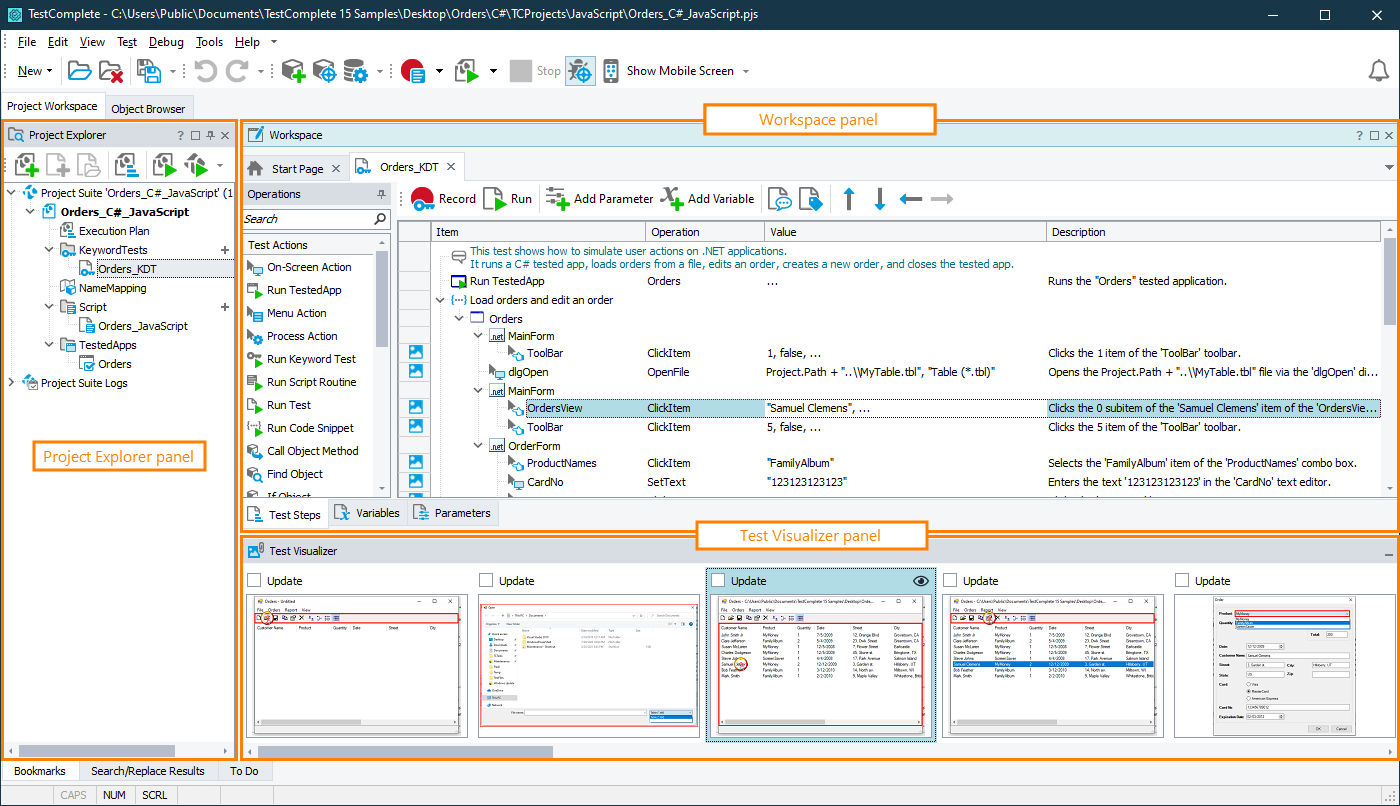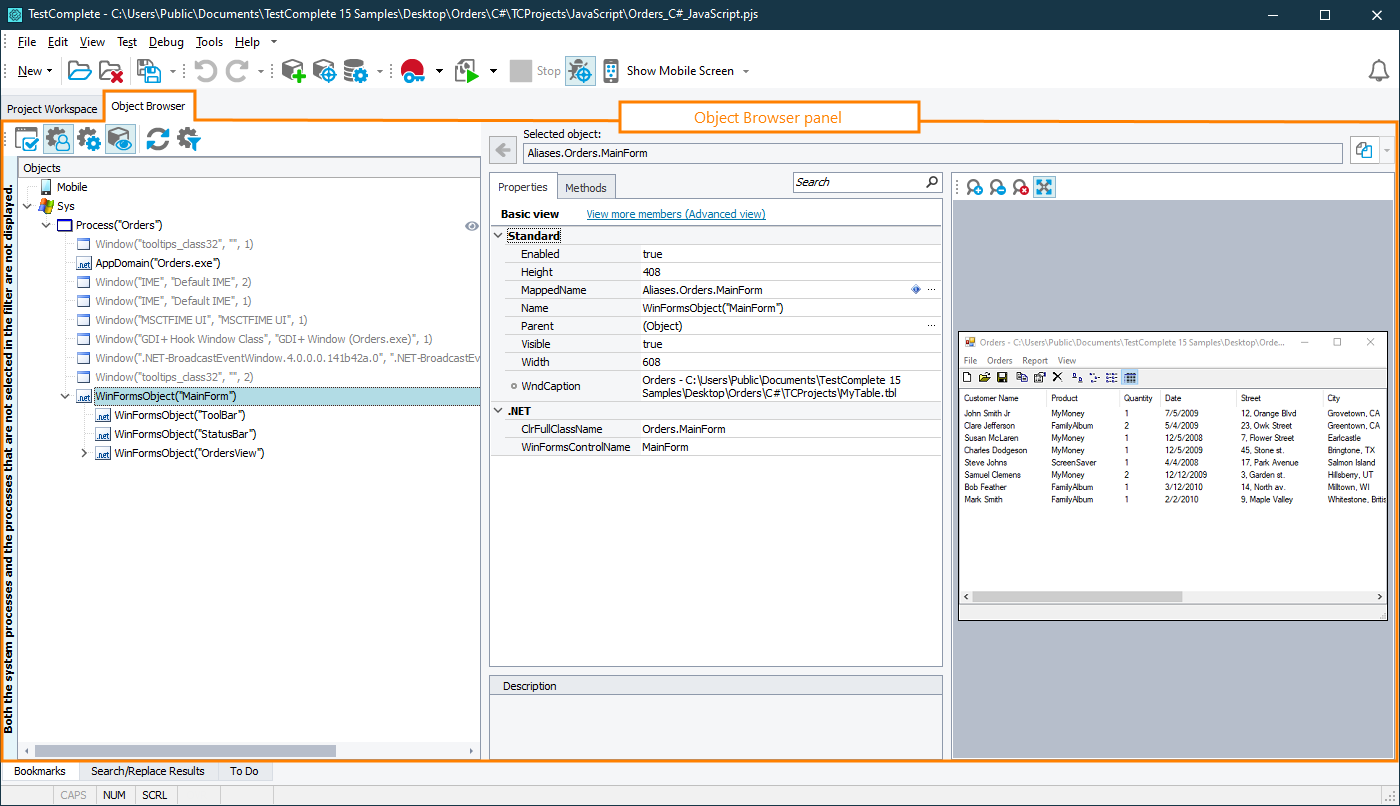Here is a sample image of the TestComplete main window:
The TestComplete user interface is organized into a number of panels:
-
Project Explorer (on the left of the window) shows the contents of projects and the project suite. It also provides access to test logs.
-
Workspace is your working desktop: the contents of editors, in which you create and edit tests and view test results, are shown in the Workspace panel. For example, in the image above you can see the Keyword Test editor opened in the Workspace.
-
Below the editor, there is a Test Visualizer panel that shows images captured by the test engine during recording of test commands. These images help you understand the actions which test commands perform.
-
Watch List, Locals, Breakpoints, and Call Stack panels are used for test debugging. The To Do panel manages a list of tasks to be done.
-
The Object Browser shows contents that are available for all projects - the list of all processes, windows and controls, and mobile devices that exist in the system and are available to the test engine. All these objects form a tree of hierarchy that matches the actual hierarchy of objects in applications.
When you record tests, TestComplete captures user actions as actions over these objects, their properties and methods.
To learn about a panel, click within this panel, and then press F1. This will open the panel description.
TestComplete includes several visual themes that control the user interface appearance. For example, the light (default) theme and the dark theme. You can switch between themes in the Tools > Options > General > User Interface dialog. You can also customize the layout of TestComplete panels: hide panels, move panels, change their size, and so on, manually. See Customizing TestComplete.
You use menus and toolbars to command TestComplete to perform certain actions. Its menu subsystem is similar to the menus and toolbars of Microsoft Visual Studio and other popular Windows applications. You can change the toolbars location, move items from one menu or toolbar to another, hide items, add hidden items back, and perform other tasks. For more information, see Working With TestComplete Toolbars and Menus.
See Also
Introducing Automated Testing and TestComplete
Docking
Working With TestComplete Toolbars and Menus
Arranging Columns, Lines and Panels



 Prev
Prev